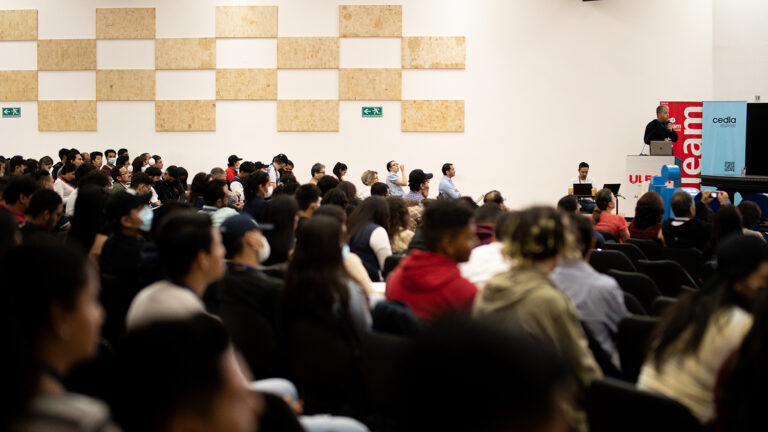
TICEC es la conferencia sobre Tecnologías de la Información y la Comunicación más importante del Ecuador. Este evento ofrece una variedad de actividades científicas y técnicas acompañadas de presentaciones culturales típicas de la ciudad anfitriona. Nuestros participantes podrán disfrutar de un evento académico, científico y cultural durante 3 días en una ciudad nombrada Patrimonio Cultural de la Humanidad.
Invitamos cordialmente a toda la comunidad científica a planificar su asistencia al TICEC del 18 al 20 de octubre de 2023 en Cuenca, Ecuador. La sede será la Universidad de Cuenca
FECHAS IMPORTANTES
Call for Papers
Fecha límite de envío
16 de Julio
Notificación de aceptación
21 de Agosto
Carga de versión final
24 de Agosto
Registro de autores
17 de Septiembre
Call for Workshops
Fecha limíte de envío de propuestas
25 de Junio
Notificación de aceptación
09 de Julio
Call for Tutorials
Fecha limíte de envío de propuesta
30 de Julio
Notificación de aceptación
11 de Agosto

TICEC desarrolla diversas actividades científicas en el ámbito de las Tecnologías de la Información y la Comunicación. Con tu inscripción tendrás acceso a:
- Presentación de papers Cientifícos y Técnicos
- Expositores de renombre Internacional
- Workshops
- Talleres prácticos
- Incluye: Almuerzo y pausas café (Se aplica a la presencialidad los días 18 y 19).



